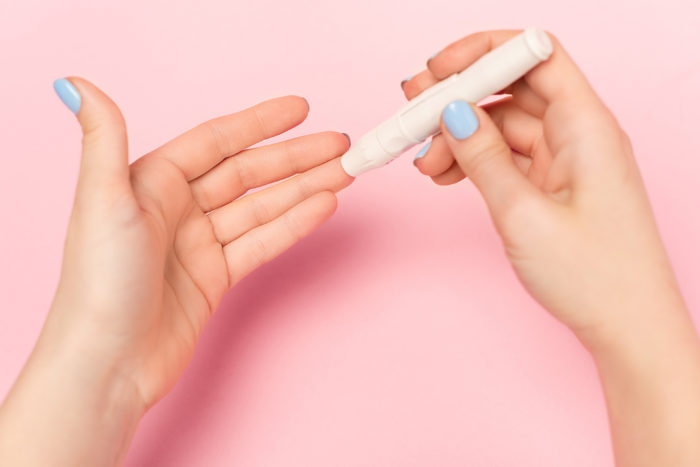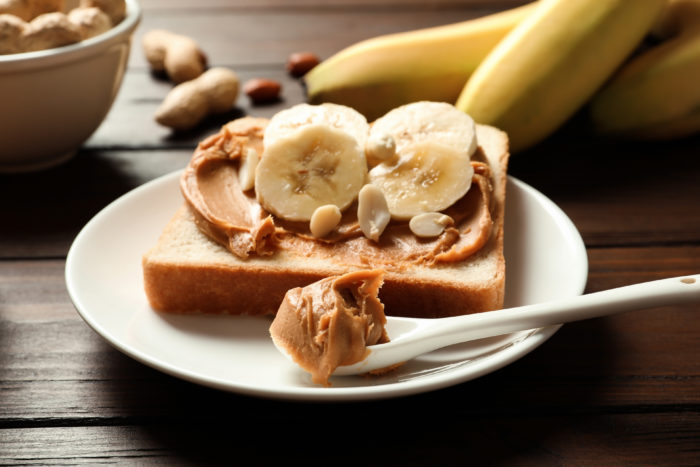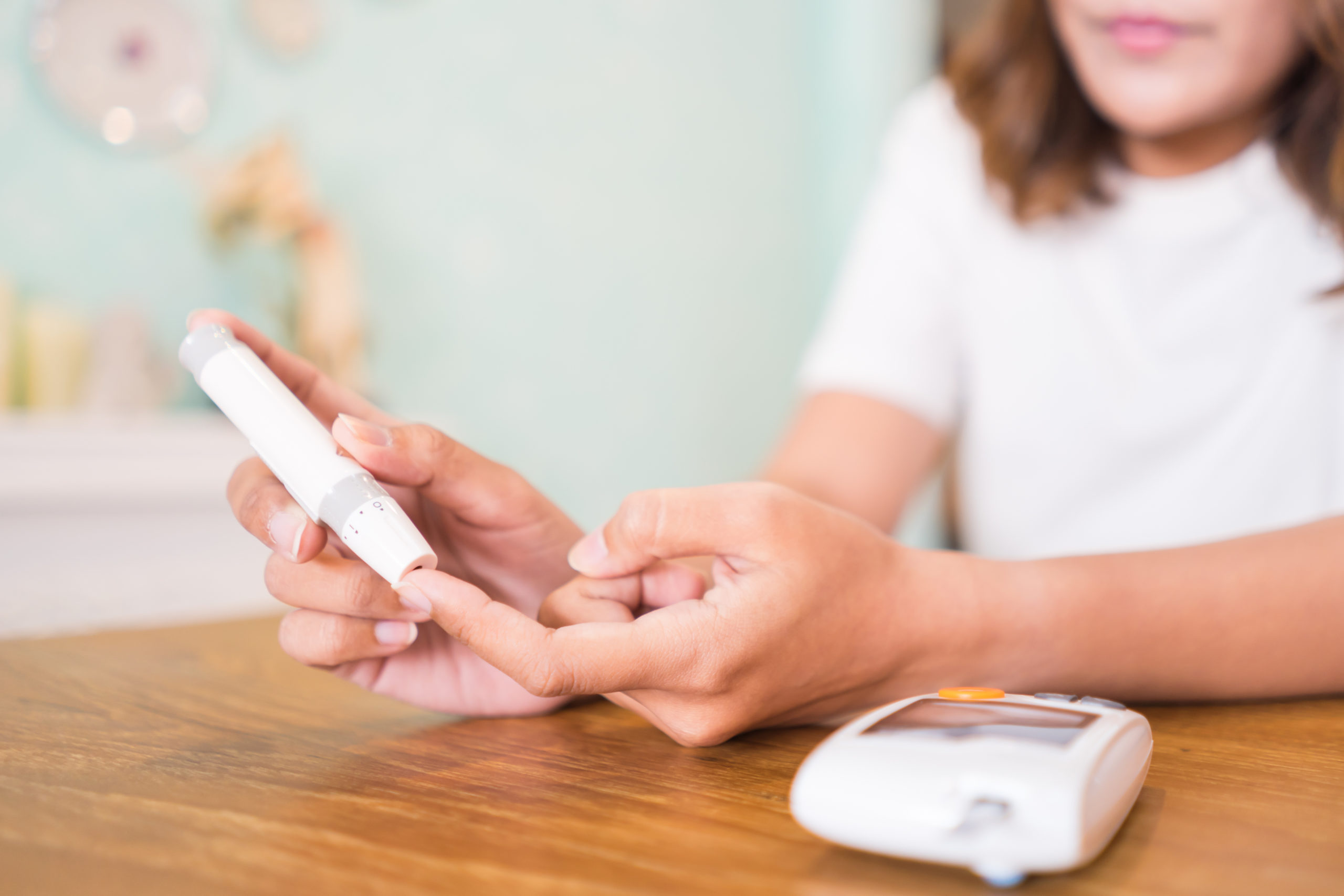Did you know that good blood sugar control is an integral part of your health and wellbeing? Keep reading to learn the basics of blood sugar control and how to manage it using diet and lifestyle techniques.
Blood sugar control is an often overlooked but critical factor to our health and wellbeing.
And understanding your blood sugar isn’t only for people with Diabetes or insulin resistance.
Everyone experiences blood sugar highs and lows at some time in their life. Some fluctuation is normal, but when our blood sugar swings too wildly, problems often occur. These swings are often behind many common symptoms mistakenly associated with other conditions.
Subtle symptoms like fatigue or moodiness after meals are often alleviated with a more in-depth understanding of how your body processes the food you eat.
There are so many factors at play in blood sugar management. Everything from what you eat for breakfast to how many hours of sleep you get can impact how much your blood sugar will deviate that day.
Learning how to balance your blood sugar can help you get more in tune with your body. Knowing how your blood sugar works arms you with the knowledge to help you feel your best.
In this article you’ll learn all the basics of blood sugar control:
- How blood sugar works
- Why you should take steps to control your blood sugar
- “Normal” blood sugar levels
- How to measure blood sugar
- Some tips for balancing blood sugar naturally
If you’re ready to learn about blood sugar balance and how it can help you can optimize your health, let’s go!

How Blood Sugar control Works
The process that your body uses to balance blood sugar is actually pretty intricate.
There are many hormones and body systems involved in taking the sugar that you consume and turning it into energy your cells can use.
When you eat carbohydrate-containing foods, your digestive system breaks those carbohydrates down into a simple sugar called glucose. This sugar makes its way into your bloodstream for transport around your body.
Depending on how much carbohydrate you consume, your blood glucose levels can become too high or too low. And this is where blood sugar control comes in.
To keep blood glucose at a normal level, the pancreas is recruited to produce the hormones insulin and glucagon.
When blood sugar is too high, insulin works to shuttle excess blood glucose into the cells, as well as to the liver where it’s stored as glycogen.
And when blood sugar starts to drop too low, glucagon signals to the liver to turn stored glycogen back into glucose and release it into the bloodstream.
Your body’s blood sugar response essentially works like the thermostat in your home. It makes slight adjustments to keep your blood glucose levels normal and stable.
But, when you aren’t eating enough carbs, like on a low carb diet or when you’re fasting, your body has to find a source of glucose and energy elsewhere.
When there isn’t enough glucose available to supply the body with the necessary energy, your liver initiates a stress response to make its own fuel.
Much of the fuel provided is made from fat instead of glucose and can supply your body with energy in the absence of sugar. This is a process known as ketogenesis and is the basis behind the ketogenic diet.
The liver can also produce new glucose using a process called gluconeogenesis. These two processes together can help the body get adequate glucose and energy to stay alive in the absence of dietary carbohydrate.

Why You Should Care About Blood Sugar Control
You don’t have to have a diabetes diagnosis or insulin resistance to care about your blood sugar.
Big shifts in your blood sugar can drastically affect your health and wellbeing.
Everything from your mood to your energy levels is at least partially controlled by the stability of your blood sugar.
And too low blood sugar can actually kill you, which is why your body takes those lows so seriously.
Blood sugar imbalances not only make you feel unwell, but they’re also stressful on your body and can lead to other chronic health conditions.
Weight gain and obesity is common with insulin resistance and the associated blood sugar imbalances. And your likelihood of developing a cluster of conditions known as Metabolic Syndrome can change depending on how well your body is able to control blood sugar.
Even your gut health and sex hormone levels can fluctuate based on the stability (or lack thereof) of your blood sugar.
Blood sugar control looks different for everyone. But learning how to balance your blood sugar can positively impact so many areas of your health.

Symptoms of Imbalanced Blood Sugar
It might not be obvious that you have an issue with blood sugar balance.
The symptoms of both high and low blood sugar often look like other health conditions. This makes it common for blood sugar imbalances to be often overlooked.
The best way to determine if you need to work on your blood sugar control is to test your blood levels.
Here are some common symptoms of imbalanced blood sugar to help you get started.
Symptoms of hypoglycemia (low blood sugar):
- Feeling shaky
- Nervousness or anxiety
- Sweating, chills, clamminess
- Irritability
- Confusion
- Fast heartbeat
- Lightheadedness
- Hunger
Symptoms of hyperglycemia (high blood sugar):
- Nausea and vomiting
- Fruity-smelling breath
- Shortness of breath
- Dry mouth
- Weakness
- Confusion
- Abdominal pain
If you experience any of these symptoms on a regular basis, it’s important to get checked out by your doctor right away.
Blood sugar imbalances are nothing to play around with. If you frequently experience these symptoms, it’s important to get tested for diabetes or other serious blood sugar disorders.
But even if you don’t have a clinical blood sugar disorder, functional blood sugar imbalances can also cause negative health outcomes.
Learning how to control your blood sugar with simple diet and lifestyle changes can vastly improve your health and wellbeing.

What’s Normal When it Comes to Blood Sugar
When it comes to blood sugar, “normal” is a subjective term.
What many conventional doctors consider to be normal is simply what’s required to not get a diabetes diagnosis.
But if you’re looking to optimize your blood sugar control, you don’t want to aim for just avoiding disease.
According to the blood glucose monitoring of healthy people, a normal fasting blood sugar level is 89 mg/dL or less. (You measure fasting blood sugar upon waking in the morning before breakfast)
But many doctors consider anything under 100 mg/dL normal and not at risk for diabetes.
However, studies have shown that people with fasting blood glucose over 95 mg/dL had more than three times the risk of developing future diabetes than people with a fasting blood glucose below 90 mg/dL.
Determining your standard of “healthy” is a critical step in identifying what “normal” blood sugar looks like for you.
For someone with diabetes or a family history of the disease, fasting blood sugar levels below 100 mg/dL might be what they aim for.
But if you’re looking to optimize your blood sugar, you generally want to aim for a fasting blood glucose a little lower than that.
Normal Blood Sugar Fluctuations
It’s completely normal and healthy for your blood sugar to fluctuate throughout the day.
Blood sugar is the lowest when you haven’t eaten in several hours, such as in the morning right after you wake up due to fasting overnight while sleeping.
After you eat your first meal, it’s normal for your blood sugar to rise. This is especially true if that meal contains a decent amount of carbs.
You should then expect your blood sugar to keep rising as your body digests and metabolizes the glucose from your meal. Blood sugar one hour and two hours post-meal should be higher than it was before you ate.
Would you like to save this post?
Your email address is 100% safe and will never be sent spam.
Anything less than 140 mg/dL one hour post-meal, and 120 mg/dL two hours post-meal is considered healthy.
If your blood glucose fluctuates more than that on a regular basis, especially if your one hour post-meal numbers are above 180 mg/dL, you should seek further testing for diabetes.

How to Measure Blood Sugar
Being able to comfortably measure your blood sugar is the first step in learning how to control it.
To measure your blood sugar at home you’ll need a blood glucose meter, test strips, and a lancet to prick your finger. You can get them all in a kit, here.
To get an idea of how well controlled your blood sugar is AND how it reacts to the food you’re eating you should test:
- first thing in the morning
- before each meal
- one hour after each meal
- two hours after each meal
With this information, you can then adjust your diet, lifestyle, or add in some supplements to help better control your blood sugar and optimize your health.

Ways to Control Blood Sugar Naturally
Blood sugar swings can cause some unpleasant symptoms, not to mention can set us up metabolically for chronic health issues down the road.
If you have diabetes or prediabetes, you should follow your doctor’s recommendations for controlling your blood sugar.
But if you’re looking to minimize the time you spend on a blood sugar rollercoaster, there are some simple diet, lifestyle, and supplementation changes you can make to help.

Diet for Controlling Blood Sugar
When it comes to the best diet for blood sugar control, our main goal is to stabilize insulin levels and reduce any sharp blood sugar spikes and drops.
Meals high in carbs, and/or lacking in protein and fat, are the main culprits behind big swings in blood sugar and the associated symptoms.
To avoid this, I recommend always pairing a high carbohydrate food with a food high in fat. This combination helps to slow carbohydrate digestion and prevent dramatic spikes in your blood sugar.
This doesn’t have to be a drastic change. If you want to eat a banana, have some peanut butter to go with it. Or if you’re having a sweet potato with dinner, slather some butter on top.
Fiber is also helpful to slow the digestion of carbs and can promote more balanced blood sugar.
If you’re looking to optimize your blood sugar control I’d aim for having meals with the following macronutrient ratios:
- 20-30% protein
- 20-40% carbs
- 30-50% fat
Eating within these ranges gives most people the best chance at maintaining stable blood sugar all while supporting the health of the rest of your body.
That doesn’t mean that there isn’t room for a low carb diet in certain cases. If you have prediabetes or diabetes, or another condition that affects glucose tolerance, you may want to experiment with a diet lower than 20% carbs.
Here’s how to know if a low carb diet might be right for you.
And your macro balance is meaningless if you’re not eating enough total calories for the day, which is another common cause of blood sugar swings. Here’s how to know if you need to eat more food!

Lifestyle for Controlling Blood Sugar
Believe it or not, your lifestyle can greatly impact your body’s ability to control blood sugar, possibly even more than your exact diet.
The most common influences on blood sugar outside of diet are stress, sleep, and exercise habits.
Insulin, the main driver behind blood sugar levels, is a hormone. And like other hormones, it’s very sensitive to the effects of stress.
An animal study showed that when subjected to four weeks of chronic stress, subjects showed increases in their fasting insulin levels and impaired glucose tolerance.
And if that wasn’t bad enough, this metabolic profile persisted even when the stressors were removed.
This means that chronic stress not only impacts our blood sugar control while we’re stressed, but afterward too.
A major source of chronic stress, sleep deprivation, can also make blood sugar regulation more difficult.
Lowering your stress levels, making sleep a priority, and exercising often are all lifestyle adjustments that can result in good blood sugar control.
Both moderate and high-intensity exercise can improve blood glucose levels for up to three days after the workout. But, you don’t need to go crazy when exercising for better blood sugar control.
Exercise that is too strenuous can be stressful on your body and have the opposite effects on your blood sugar. Apply the Goldilocks principle when determining your ideal exercise routine: not too much, not too little!

Supplements for Controlling Blood Sugar
To control your blood sugar, you should always make diet and lifestyle adjustments first. For most people, eating a balanced, high protein diet and optimizing their stress, sleep, and exercise habits is plenty for creating a healthy blood sugar response.
If you’re not seeing the results you’re looking for with those changes, you can start to add in some targeted supplementation.
There is evidence that cinnamon can be helpful in improving glucose levels and insulin sensitivity.
And while these results are dose-dependent, it wouldn’t hurt to be intentional about adding cinnamon to your meals to help improve your blood sugar control.
Fenugreek can also be helpful in lowering blood sugar levels.
People who consumed 10 grams of Fenugreek seeds a day, along with a healthy diet and exercise routine, saw lowered blood glucose levels.
Another great supplement for controlling blood sugar is ginger.
One study shows that supplementation with ginger over at least 30 days resulted in a significant reduction in fasting blood glucose levels but did not affect insulin levels.
These results show that ginger may help control blood sugar by reducing insulin resistance.
What’s great about these herbs is that, depending on your degree of blood sugar dysregulation, you can add them into your meals each day if you’re not a fan of popping more pills.
Finally, berberine is an herbal supplement that has been shown to have similar effects as the blood sugar medication Metformin. This is a product that I frequently recommend to my clients with insulin-resistant PCOS to help them improve their insulin sensitivity.
Of course, before starting any new supplements, always check with a doctor who knows your unique health situation. Some of these supplements can interact with medication so do not take any without speaking to your personal healthcare provider.

The Bottom Line on Blood Sugar Control
There are so many reasons to focus on optimizing your blood sugar control, even if you don’t have diabetes.
The symptoms of imbalanced blood sugar can affect your day-to-day life, as well as your long term metabolic health.
For most people, you’ll be able to balance your blood sugar through some simple diet and lifestyle changes, and if necessary, evidence-based supplementation.
But, if you’re still not seeing results, you might need some targeted support from a practitioner.
Blood sugar control happens through a complex feedback system. And it might require a little more digging to uncover the reason behind your blood sugar swings.
If you’re struggling to get your blood sugar under control, I recommend working with a qualified healthcare provider that can help you get your health optimized.
Have you noticed any symptoms of high or low blood sugar after certain meals? If you’ve been able to correct this imbalance, what’s the number one thing that has helped you? Share your experience in the comments!
This post may contain affiliate links. If you click on a link and make a purchase, I may receive a small commission.

+ show Comments
- Hide Comments
add a comment